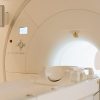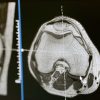Exploring the World of Imaging Technician Jobs: Your Path to a Career in Medical Imaging
Medical imaging plays a pivotal role in modern healthcare, providing physicians with crucial visual insights into the human body to diagnose and treat a wide range of medical conditions. If you’re considering a career in this field, you’ll discover a variety of imaging technician jobs, each with its own unique focus and requirements. This article will introduce you to the diverse world of medical imaging careers and outline the steps to start a rewarding journey in this dynamic field.
Types of Imaging Technician Jobs:
- Radiologic Technologist: Radiologic technologists, often referred to as radiographers, perform X-rays and other diagnostic imaging procedures. They operate X-ray machines, capture images of patients’ internal structures, and work closely with physicians to assist in diagnosing medical conditions. To become a radiologic technologist, you typically need an associate degree in radiography and state licensure.
- MRI Technologist: MRI technologists specialize in operating Magnetic Resonance Imaging (MRI) machines. They create detailed images of the body’s internal structures using powerful magnets and radio waves. MRI technologists often work in hospitals and imaging centers. To pursue this career, you usually need a bachelor’s degree or a certification program in MRI technology.
- CT Technologist: Computed Tomography (CT) technologists, also known as CT scan techs, specialize in performing CT scans, which provide cross-sectional images of the body. They work closely with radiologists and physicians to ensure accurate image acquisition. Becoming a CT technologist typically involves an associate degree and passing a certification exam.
- Ultrasound Technician: Ultrasound technicians, or diagnostic medical sonographers, use sound waves to create images of the body’s internal organs and tissues. This field offers various specializations, such as abdominal, cardiac, or vascular sonography. To become an ultrasound technician, you can pursue an associate or bachelor’s degree in diagnostic medical sonography.
- Nuclear Medicine Technologist: Nuclear medicine technologists work with radioactive materials to perform diagnostic imaging procedures. They create images that show how organs function and help diagnose conditions like cancer and heart disease. To enter this profession, you’ll need an associate or bachelor’s degree in nuclear medicine technology.
- Radiation Therapist: Radiation therapists administer radiation treatments to patients with cancer. They work closely with radiation oncologists to ensure that the prescribed radiation therapy is accurately delivered. Becoming a radiation therapist usually requires an associate or bachelor’s degree in radiation therapy and certification.
How to Start a Career in Medical Imaging:
- Education: Determine the specific imaging technician career you want to pursue and research the educational requirements. Most roles require an associate or bachelor’s degree, and some may also require certification. Find accredited programs that align with your career goals.
- Gain Practical Experience: Many programs include clinical rotations to provide hands-on experience. Utilize these opportunities to build your practical skills and network with professionals in the field.
- Certification: Depending on your chosen career, obtaining professional certification may be necessary or advantageous. Many organizations offer certification exams, and having a certification can enhance your job prospects and earning potential.
- Licensing: In some states, imaging technologists are required to be licensed or registered. Check the licensing requirements in your state and ensure you meet them.
- Job Search: Once you’ve completed your education and any required certifications, begin your job search. Hospitals, imaging centers, clinics, and outpatient facilities are common employers for imaging technicians.
- Professional Development: Continuing education is essential in the field of medical imaging. Stay updated on the latest technology and practices to provide the best patient care and advance in your career.
Starting a career in medical imaging can be a fulfilling journey, offering a chance to make a meaningful impact on patient care while working with cutting-edge technology. Whether you choose to become a radiologic technologist, MRI technician, or another type of imaging professional, your role in healthcare will be essential, contributing to the diagnosis and treatment of various medical conditions.
Recent Posts
Recent Comments
Join our newsletter
Get our emails for info on new items, sales and much more.
Register now to get latest updates on the newest parts!












